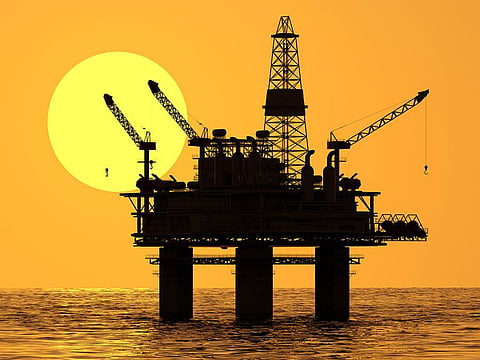Price cap on Russian oil exports effort may backfire: Indonesia's Indrawati
Russian oil exports price cap may create precedent, 'could affect other commodities'

The Biden administration's push to impose a price cap on Russian oil exports creates a precedent that could affect other commodities and may worsen global economic anxiety, said Indonesian Finance Minister Sri Mulyani Indrawati.
"When the United States is imposing sanctions using economic instruments, that creates a precedent for everything," Indrawati told Bloomberg News in an interview Tuesday. "And that's going to create uncertainty - not only for Indonesia, for all other countries."
The war is no longer just a military war -- I think that's really changed the landscape of geopolitics, diplomacy and economic relations. That's really another thing that we haven't digested yet. What does it mean for the global economy?Indonesian Finance Minister Sri Mulyani Indrawati.
Indonesia, a major commodities exporter, has been among the countries that remain unpersuaded by the price cap argument.
Oil dropped for a third day
Oil dropped for a third day on escalating concerns that a global slowdown will hurt energy demand amid a broad shift away from risk assets. West Texas Intermediate fell below $89 a barrel after losing more than 3% over the previous two sessions. The losses have come as Federal Reserve policymakers vowed to drive rates higher to quell inflation, and the International Monetary Fund warned of a worsening outlook for the global economy. Crude hit the lowest level since January last month, only to rebound after the Organization of Petroleum Exporting Countries and partners agreed to cut oil supply last week. Those gains are now unraveling as the Fed's stance aids the dollar, and investors turn away from commodities. Persistent efforts in China to contain COVID-19 have also threatened demand in the top oil importer.
Cap pushed by US
The US is trying to gain support for a price cap on Russian oil to deprive Moscow of energy revenues. The conflict in Ukraine has sent energy and food prices soaring. But while G-7 nations have supported the effort, other countries such as India and China remain large purchasers of oil, while a number of developing countries have declined to take a firm stand against Russia.
US Treasury Secretary Janet Yellen spoke to Indrawati earlier Tuesday on the sidelines of the annual meetings of the International Monetary Fund and World Bank in Washington and highlighted the price cap's economic benefits for Indonesia, among other topics, according to Yellen's press office.
Major exporter
Indonesia left the OPEC after becoming a net importer of petroleum. But it is a major exporter of commodities like natural gas, coal, nickel and palm oil.
As a result, any other price caps would threaten the country's economic health. Indonesia has so far this year benefited from a fiscal windfall from rising commodity prices that has helped insulate it against the effects of a stronger dollar and higher borrowing costs now causing turmoil in other emerging economies, Indrawati said.
The veteran finance minister -- whose country is hosting the Group of 20 summits this year - said it's been challenging to navigate the planning of a series of international meetings amid global turmoil over the Ukraine war.
Secretary of State Antony Blinken and Russian Foreign Minister Sergei Lavrov both attended a G-20 foreign ministers' meeting in July, and both Biden and Russian President Vladimir Putin are expected to attend the leaders' summit in November.
But Indrawati warned that US efforts to go beyond sanctions and hit Russia with a price cap could have unforeseen consequences.
"The war is no longer just a military war -- I think that's really changed the landscape of geopolitics, diplomacy and economic relations," she said. "That's really another thing that we haven't digested yet. What does it mean for the global economy?"
Sign up for the Daily Briefing
Get the latest news and updates straight to your inbox



